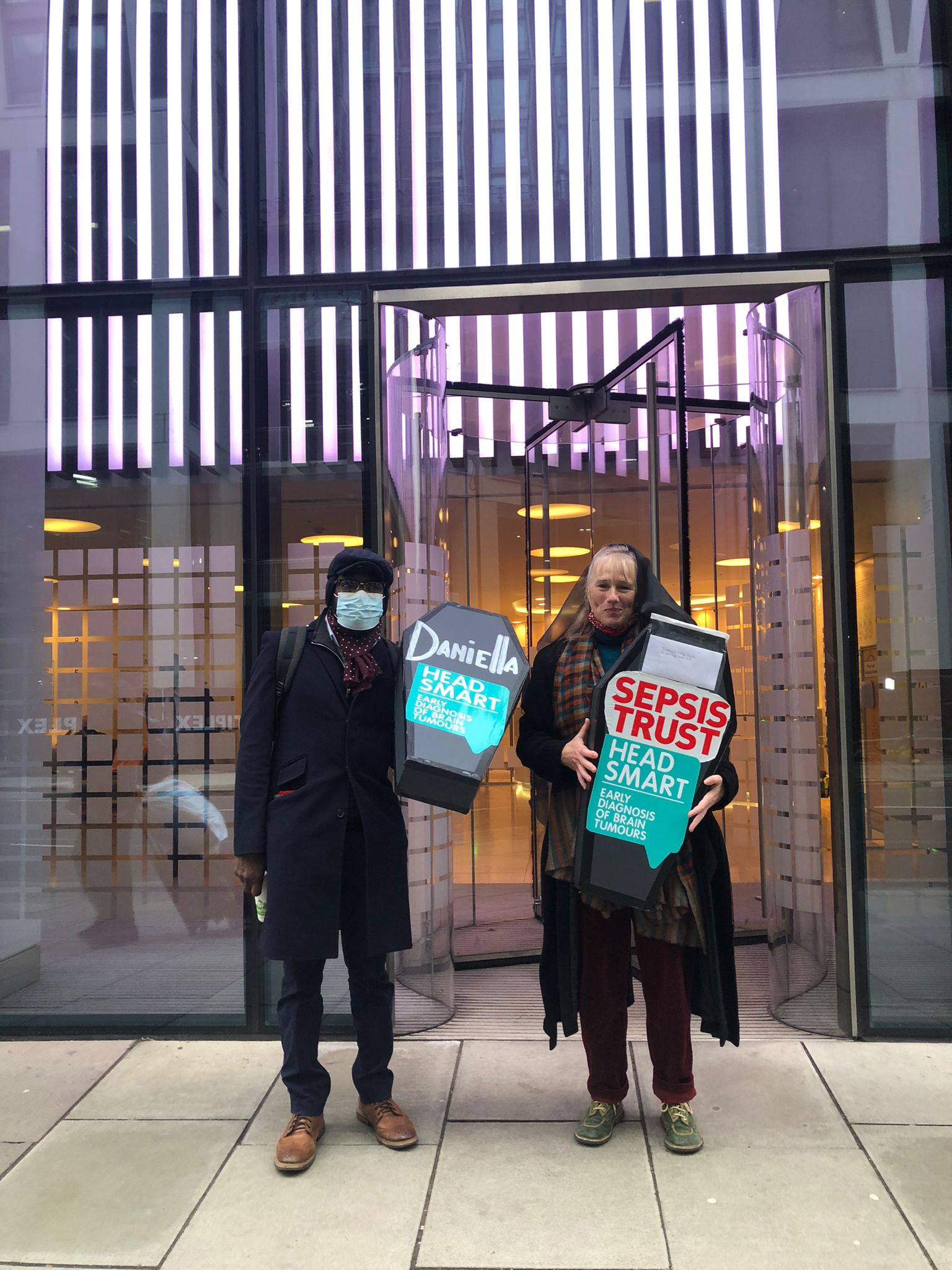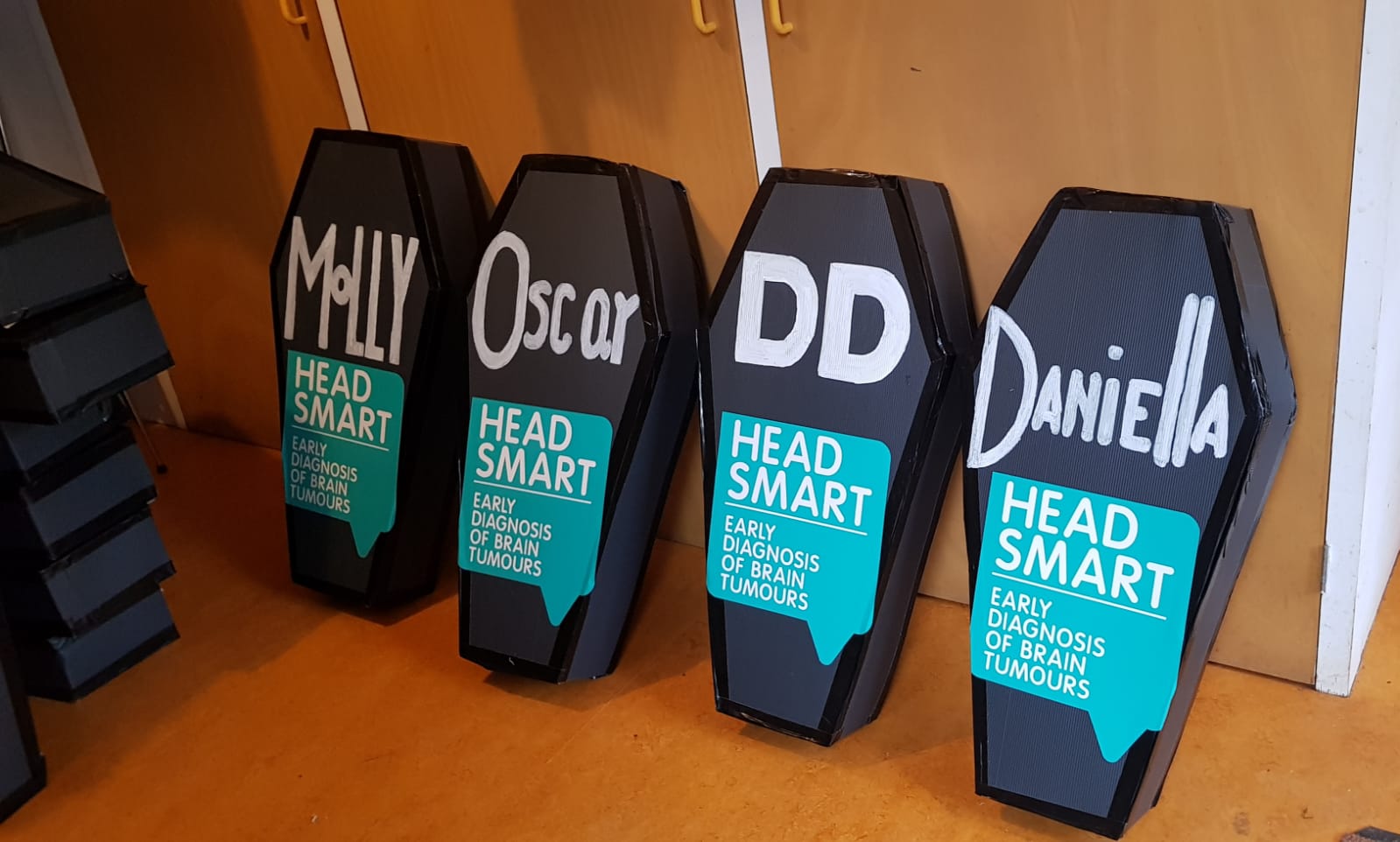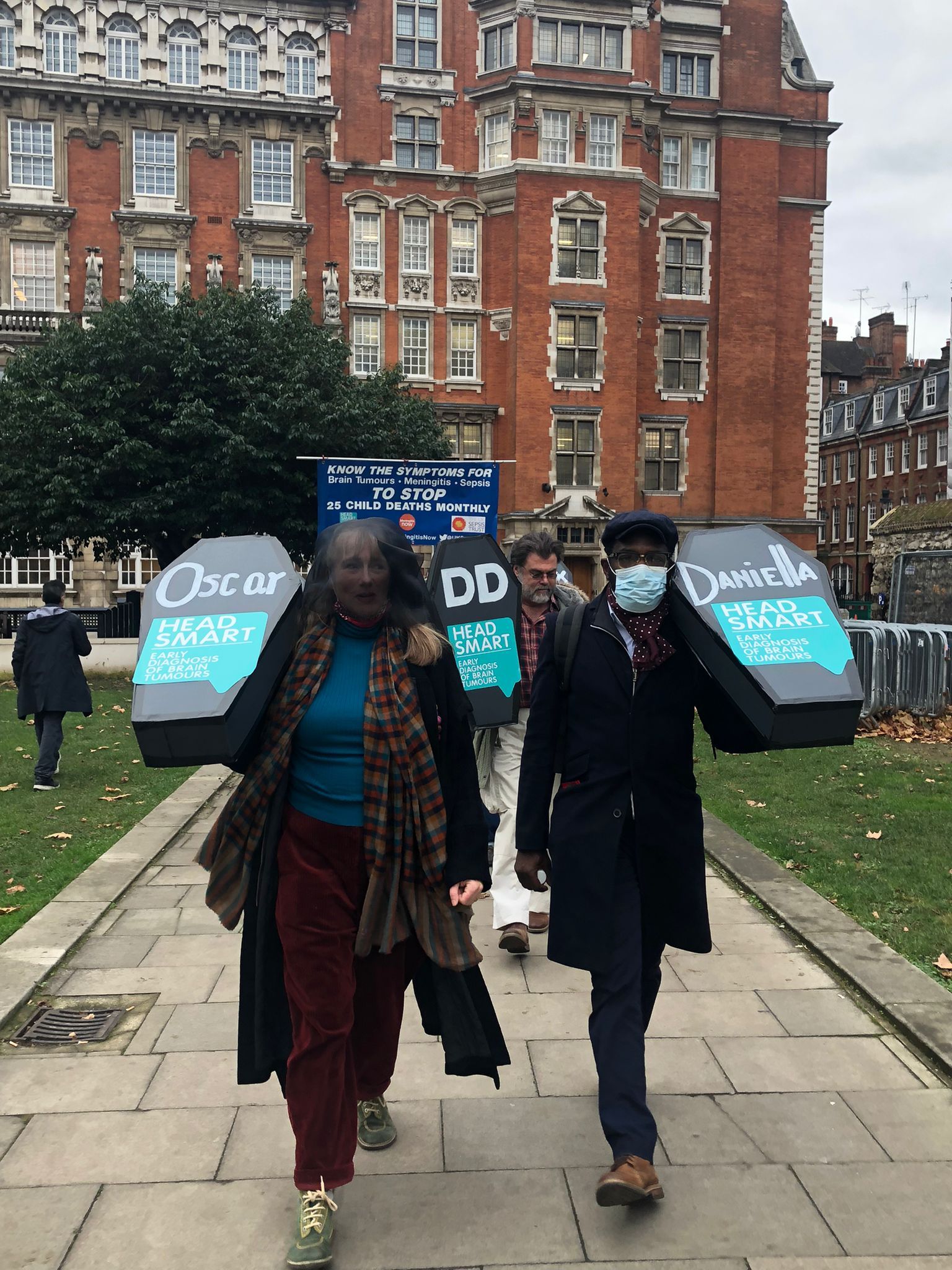We believe in the evidence that research offers us and according to Willard et al 2019, states that "the parents of a child with a brain tumour are inundated with information at diagnosis and follow-up medical visits. Such information overload ranges the breadth of treatment details, medical appointments, as well as the necessary but difficult treatment of late effects. It is presently not possible for oncologists to precisely predict and individual child's risks of late cognitive or psychosocial late effects, leaving parents and families yearning for more details".
This is Why We Do, What We Do. We seek to step into the wellbeing support gap and work collaboratively with the NHS, local & national government, Voluntary, Community and Social Enterprise organisations to offer holistic wellbeing (emotional, practical & spiritual) support services that are accessible to more Children and Young People diagnosed with brain tumours and their families from the point of diagnosis onwards.
A population based study by Lönnerblad M, et al. (BMJ Paediatrics Open 2020) found that children treated for brain tumours often need extra support in school because of the late-appearing side effects after their treatment. Lönnerblad M, et al. also explored how this group of children performed in the five practical and aesthetic subjects: home and consumer studies, physical education and health, art, crafts and music. Results showed that children treated for a brain tumour, especially girls, are at risk of lower average grades or failing these subjects. All children treated for brain tumour may need extra support as these subjects are important for their well-being and future skills. It is widely recognised that these outcomes can be mitigated for through the provision of early Special Educational Needs Disabilities (SEND) facilities in an adapted learning environment.
The Covid-19 pandemic, indiscriminately impacted our Children and Young People's health and social wellbeing and highlighted the gaps in the provision of holistic wellbeing support and the inequalities in the access to, experience and outcomes of these children and their families.
We are committed to bridging this support gap. This Brain Tumour Awareness Month, we are campaigning to raise awareness of the signs and symptoms of childhood brain tumours, the impact and the holistic wellbeing challenges faced by our children and their families in our community. Can you join us in creating a better future today? Can you support our work? Can you help us raise awareness? Can you volunteer and help us reach more children & their families today?
Read The Brain Tumour Charity's National Strategy Policy Paper
National-Brain-Tumour-Strategy-Policy-Paper-1.pdf (thebraintumourcharity.org) .
Hillingdon Brain Tumour & Injury Group (HBTIG) BTAM Awareness Campaign 2019
Thank you Hillingdon Brain Tumour & Injury Group (HBTIG) for the opportunity to raise awareness of the impact of brain tumours in people with brain tumours in our community in Hillingdon and the surrounding areas.
A valuable opportunity to address the Rt Honorable Boris Johnson and communicate important data on the needs of adults and children diagnosed with brain tumours and the impact of this diagnosis on their lives.
Brain Tumours are responsible for the highest cancer deaths of people under 40 and one of the most common tumour types in young people. Yet some of the issues are that brain tumours in children differ significantly in incidence, tumour type and treatment compared to adults. Whilst a child's brain cells are still developing and will respond differently to treatment, overall, survival rates for those diagnosed with brain tumours are better in childhood compared to adult years. This immaturity in brain development makes decisions on treatment more difficult especially in infants.
Symptoms preceding BT diagnosis are non-specific, and are often initially attributed to other diseases. Advanced knowledge about common symptoms of BT in the paediatric, adolescent and young adult populations could raise awareness among the medical community**.
(*Reference 1, *Reference 2).
Read The the All People's Parliamentary Group (APPG) for Brain Tumour Report
BTR_2667_APPGBT_Briefing_Pathway_A4_36pp_2023_Singles_HQP.pdf (shopify.com).
Partnering with The Brain Tumour Charity, HeadSmart UK & Sepsis UK Trust
Raising Awareness of Child Death Rates from
Childhood Brain Tumours and Sepsis.
We understand that no one wants to think about childhood cancers or childhood cancer deaths but sadly, 10 children in the UK are diagnosed with brain tumours every week. Even more painful is that 1 in 5 of those children will die from a brain tumour diagnosis. This is a very hard thing to consider but Daniella Logun, Alex, DD, Molly and Oscar (to mention a few) were some of those children who did not survive their diagnosis. This might have been their outcome BUT it doesn't have to be the same for the next child diagnosed with a brain tumour, sepsis or other cancer.
We know that this is a difficult topic of discussion but as difficult as this is, we are privileged to lend our voice to this important awareness campaign, in memory of Daniella, Alex, DD, Molly Oscar and other children who's names are only known to their families, friends and carers. We partnered with HeadSmart and UK Sepsis Trust in December 2021, to hold this strong campaign march and deliver a letter to Sajid Javid, UK Health Secretary to draw his attention to the number of child deaths occurring monthly as a direct result of childhood brain tumours and sepsis. Thanks to the help our bereaved parents, families and friends network, we were able to march down Parliament Square with 25 child coffins to demonstrate the urgent need for the national communication of the symptoms and key causes of cancer deaths in children. It might be a grim image for some but the 25 coffins that were carried in the images below, represent 25 child deaths monthly and more needs to be done to hold our government to account to save more of our children's lives.
Access to the right care, at the right time, by the right people was even more important during the pandemic when it was harder to go to your #GP and sadly early opportunities to investigate potential signs and symptoms or detect childhood brain tumours in children were deprioritised due to the overwhelming COVID19 death rates and NHS COVID19 response protocols. As part of the national COVID19 recovery policies, we are asking for more funding for advanced brain tumour research & development, to improve early detection techniques and achieve earlier intervention and treatment to save more children's lives.
The public should know the signs of #sepsis @UKSepsisTrust & #braintumour @HeadSmartUK and be able to ask "Could it Be?" "Can you #RuleitOut?"
Every relevant charity, health institution & media house must communicate to raise awareness of childhood and save lives @DaniellaLogun @GOSHCharity Please share this page.
Partnering with Together for Short Lives
Sharing new data on the impact of NHS medical and nursing workforce challenges on children's palliative care services.
With special thanks to Together for Short Lives for the opportunity to speak to MPs and peers at the All Party Parliamentary Group (APPG) reception in the House of Commons, October 2021. At the reception, TfSL shared new data describing the medical and nursing workforce challenges facing the NHS and voluntary sector children’s palliative care services in England, including children’s hospices – and the impact on seriously ill children and their families. This is an issue on which the APPG recommended action following their inquiry in 2018. The aim from the reception was to encourage MPs and peers to press the government to act to reduce medical and nursing vacancy rates across hospital, community and children’s hospice-based children’s palliative care services.
We had the privilege of an audience with Caroline Dineage at the Department of Health and Social Care from 9 January 2018 to 13 February 2020, about the impact that workforce shortages had on Dannie's care and the current care received by other families and their children with life-threatening and/or life-limiting illnesses. Some issues identified include a lack of access to 24/7 care, cancelled appointments or difficulty in finding carers to appoint given the right personal budget. Caroline Dineage listened with interest as we shared plans of setting up the Daniella Logun Foundation.
It was a great opportunity to hear first-hand some thoughts on how members can act to alleviate the pressures on the children’s palliative care workforce.
Our X Feed
The Brain Tumour Charity @BrainTumourOrg
Thank you@Jeremy_Hunt
for your question to the Secretary of State today to mark the start of Brain Tumour Awareness.
We are so sorry to hear of your recent loss. Research into brain tumours is essential on the path to finding a cure! #voicesforchange#BTAM2022
Click here to watch Jeremy Hunt Secretary of State (2022) at Parliamentary Questions in the House of Parliament.


















